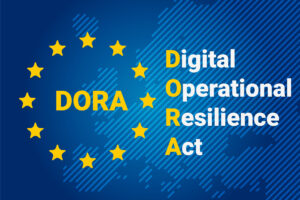The holiday season, while a time of festivity and giving, is also a peak period for cybercriminals to exploit vulnerabilities within businesses. From phishing attacks disguised as festive greetings to sophisticated financial frauds, these scams can significantly impact a company’s financial and data security.
In this detailed guide, we delve into the ‘12 Scams of Christmas’ – highlighting key threats and providing actionable strategies for businesses to protect themselves and their employees.
1. Spear Phishing with a Holiday Twist
During the holidays, spear-phishing attacks become increasingly sophisticated and difficult to distinguish from legitimate communications. These emails might appear to be from a company leader or a known vendor, offering holiday bonuses, gifts, or special offers. They are specifically designed to lure employees into divulging sensitive information or initiating unauthorized transactions.
To combat this, companies should conduct comprehensive cyber training sessions on recognizing and responding to phishing attempts. These sessions should include examples of holiday-themed phishing emails and the common indicators of a phishing attempt, such as urgent language, unexpected attachments, or links, and email addresses that don’t quite match the supposed sender’s actual email address.
Additionally, implementing email authentication protocols such as DMARC (Domain-based Message Authentication, Reporting & Conformance) can help filter out fraudulent emails. It’s also wise to establish a protocol for verifying the authenticity of unusual requests, especially those involving financial transactions or personal information. This might involve a follow-up phone call or an in-person verification, especially for requests that seem out of the ordinary.
2. Fake Online Retailers Targeting Corporate Purchases
Holiday seasons see a rise in corporate gifting, making businesses lucrative targets for fake online retail scams. Cybercriminals set up websites that mimic legitimate e-commerce platforms, offering attractive but fictitious holiday deals. When purchases are made, payment information is stolen, and no product is delivered.
To safeguard against this, businesses should educate their employees about the risks of using unverified websites for corporate purchases. Staff responsible for purchasing should be trained to look for red flags such as HTTP (instead of the more secure HTTPS) in the website URL, misspellings, poor website design, and prices that are too good to be true.
Implementing a company-wide approved vendor list for corporate purchases can also mitigate this risk. This list should be comprised of verified and trusted retailers. Additionally, using a dedicated corporate credit card with fraud protection for online purchases can limit the financial impact in case of a scam.
It’s also beneficial to have IT security teams monitor network traffic for signs of accessing potentially dangerous sites. Advanced cybersecurity software can provide real-time alerts if employees access websites known for phishing or fraud.
3. Compromised E-Cards as Entry Points
Digital holiday cards are a popular and environmentally friendly way for businesses to send season’s greetings. However, they can also be a cybersecurity risk. Cybercriminals often disguise malware as e-cards, and once an employee clicks on the link or downloads the card, malware is installed on their system.
This malware can range from spyware, which monitors and relays information back to the hacker, to ransomware, which can lock critical company files until a ransom is paid. The risk is heightened if the infected device is connected to the company’s network, potentially compromising the entire system.
To prevent such incidents, companies should implement strict email filtering systems that can detect and block emails containing suspicious links or attachments. Employees should be trained to be cautious with all electronic greetings, even those that appear to come from known senders. They should be encouraged to verify the sender’s authenticity and be instructed not to open e-card links or attachments from unknown or unverified sources.
An effective strategy is to have a designated IT team member or a system in place to verify the safety of digital cards before they are opened by the wider team. Additionally, keeping all security software updated is essential to defend against the latest malware threats.
4. Charity Scams Exploiting Corporate Philanthropy
The holiday season often inspires businesses to give back to the community through charitable donations. Unfortunately, this charitable spirit can be exploited by scammers who set up fake charity organizations or websites. These fraudulent entities may solicit donations from businesses, with the funds going directly into the pockets of cybercriminals.
To protect against these scams, companies should conduct thorough research on any charity before donating. This includes verifying the charity’s registration and looking up reviews or complaints. Websites like Charity Navigator or the Better Business Bureau can provide valuable insights into a charity’s legitimacy and how they utilize donations.
Another safeguard is to establish a formal process for charitable giving within the company. This process could involve a dedicated committee that vets charities or a policy of only donating to well-known and established organizations. Employee-led philanthropy initiatives should also go through a verification process to ensure legitimacy.
Businesses should also be wary of unsolicited emails or calls from charities. Genuine organizations typically do not pressure donors into making immediate donations, especially via email or over the phone. If an organization reaches out in this manner, it’s advisable to contact the charity directly through verified contact information to confirm the request.
5. Bogus Invoices During Busy Year-End Accounting
The end of the year is a hectic time for accounting departments, making it a prime period for invoice scams. Fraudsters take advantage of the high volume of invoices being processed to slip in fake ones. These invoices might be for non-existent products or services, or they might mimic the look of real invoices from legitimate vendors.
To counter this, businesses should implement stringent internal controls for invoice processing. This includes verifying new invoices against purchase orders, conducting regular audits of vendor files, and training accounts payable staff to spot inconsistencies or red flags in invoices.
A helpful measure is the implementation of a digital invoice management system that can automatically match invoices to purchase orders and flag any discrepancies. Such systems often use machine learning algorithms to learn from past invoices and get better at detecting anomalies over time.
It’s also advisable to establish a verification process for any significant changes in vendor payment details. This could involve a multi-step verification process, including phone calls and written confirmation, before any changes are accepted.
6. Gift Card Frauds Affecting Employee Rewards
Gift cards are a popular way for companies to reward employees during the holiday season. However, they are also a target for fraud. Scammers can tamper with gift cards in stores or sell counterfeit ones online. Employees may end up with a card that has no value, or worse, one that leads to a fraudulent website when they attempt to use it.
To prevent gift card fraud, companies should purchase gift cards directly from official retailers or authorized resellers. Avoid buying gift cards from online marketplaces or auction sites, as these are often the channels used to sell fraudulent or tampered cards.
If purchasing digital gift cards, ensure the website is secure (look for “https” in the URL and a padlock symbol). It’s also wise to check the balance of the gift cards as soon as they are received to ensure they are fully loaded and have not been compromised.
For businesses distributing a large number of gift cards, partnering with a reputable gift card management company can offer additional security. These companies can provide secure delivery and activation of gift cards and offer customer support in case of issues.
Employee education is also vital. Inform employees about the risks of gift card fraud and advise them on how to check the authenticity and balance of their cards. This can include instructions on how to register the card on the official retailer’s website and how to report if they suspect the card has been compromised.
7. Travel Scams for Corporate Trips
The holidays often involve corporate travel, whether for end-of-year meetings or team retreats. This period sees an increase in travel-related scams, including fake booking websites and fraudulent travel deals. These scams not only cost the company financially but can also lead to sensitive corporate information being compromised.
When booking travel for employees, it’s critical to use reputable and verified travel agencies or direct booking through official airline and hotel websites. Be wary of unsolicited travel offers received via email or through social media, especially those offering lavish packages at significantly reduced prices.
Educate employees about the dangers of sharing their travel plans or corporate details on social media, as scammers can use this information to tailor their attacks. Also, ensure that employees are briefed on how to securely access corporate data while traveling, emphasizing the risks associated with public Wi-Fi networks.
Consider implementing a corporate travel policy that outlines approved booking procedures and reimbursement policies. This can help prevent employees from falling victim to travel scams and ensure consistency in travel bookings.
8. Social Engineering Through Holiday-Themed Messages
During the festive season, there’s a tendency for employees to let their guard down, making it an opportune time for social engineering scams. These scams often involve attackers posing as colleagues or known business contacts, sending holiday-themed messages that can trick employees into revealing sensitive information or performing actions that compromise security.
Training and awareness are key in combating social engineering. Regularly remind employees about the tactics used by social engineers, especially how they might exploit the relaxed atmosphere of the holidays. Encourage a culture of skepticism and verification, where employees feel comfortable questioning unusual requests, even if they appear to come from within the organization.
Implementing strict internal communication protocols can also help. For instance, any request for sensitive information or funds transfer should be verified through a secondary channel, like a phone call. Additionally, consider using internal communication tools that offer higher security and can help authenticate the identity of message senders.
9. Wi-Fi Hacking in Public Spaces During Holiday Travels
The holiday season often means employees are working remotely or traveling. Public Wi-Fi networks, though convenient, are hotspots for cybercriminals looking to intercept data. When employees use these networks for work-related tasks, they risk exposing sensitive company information.
To mitigate this risk, educate employees about the dangers of public Wi-Fi, especially for accessing or transmitting sensitive data. Encourage the use of company-provided VPNs (Virtual Private Networks) when working in public spaces. A VPN creates a secure connection over the internet, encrypting data and keeping it safe from prying eyes.
Consider providing employees with mobile data plans or portable Wi-Fi devices for secure internet access while traveling. This not only ensures security but also maintains productivity without relying on potentially unsafe public networks.
10. Package Delivery Scams Targeting Office Addresses
During the holidays, the volume of deliveries to office addresses increases. Scammers exploit this by sending fake delivery notifications via email or text, often containing phishing links or requests for personal or company information to ‘confirm’ a delivery.
To avoid falling for these scams, advise employees to track all office deliveries directly through the courier’s official website or app, using a tracking number provided at the time of purchase. Be cautious of any unsolicited delivery notifications, especially those requiring urgent action or personal information.
Implement a process for handling deliveries, such as a designated person or department responsible for tracking and receiving all packages. This centralized approach can help prevent individual employees from interacting with potentially fraudulent messages.
11. Ransomware Disguised as Holiday Apps
Holiday-themed applications, whether for smartphones or desktops, can seem like fun additions to the festive spirit. However, they can be Trojan horses for ransomware. These malicious apps, once downloaded, can lock critical company files and demand a ransom for their release.
Prevention is crucial. Implement a policy restricting the download of non-essential, non-vetted applications on company devices. Educate employees about the risks associated with downloading unapproved software, emphasizing the potential for ransomware and other malware.
Ensure that your IT department has a robust, up-to-date antivirus and anti-malware solution in place. Regular backups of critical data can also mitigate the damage caused by ransomware attacks, allowing the company to restore lost data without paying a ransom.
12. End-of-Year Financial Email Scams
As businesses wrap up their financial year, they may become targets of sophisticated email scams. These scams often involve fraudsters impersonating senior executives or finance department officials, instructing employees to perform financial transactions or release sensitive financial information.
To counter these scams, create a verification process for all financial transactions, especially those initiated via email. Educate employees about these scams, emphasizing the importance of verifying the authenticity of any unusual financial requests. This can be done through direct phone calls or in-person confirmations, especially for high-value transactions.
Implementing technology solutions such as email filters that flag emails from outside the company’s domain can also help in identifying potentially fraudulent communications. Encouraging a culture where employees feel comfortable questioning unusual requests, even from higher-ups, is essential in creating a secure financial environment.
Conclusion:
The holiday season is a time of joy and celebration, but it also demands heightened vigilance in the face of increased cybersecurity threats. By understanding and preparing for these ‘12 Scams of Christmas’, businesses can not only protect themselves but also educate their employees to be proactive in identifying and responding to these threats.
Embracing a culture of cybersecurity awareness and implementing robust protective measures can ensure that your business enjoys a safe and secure holiday season.









